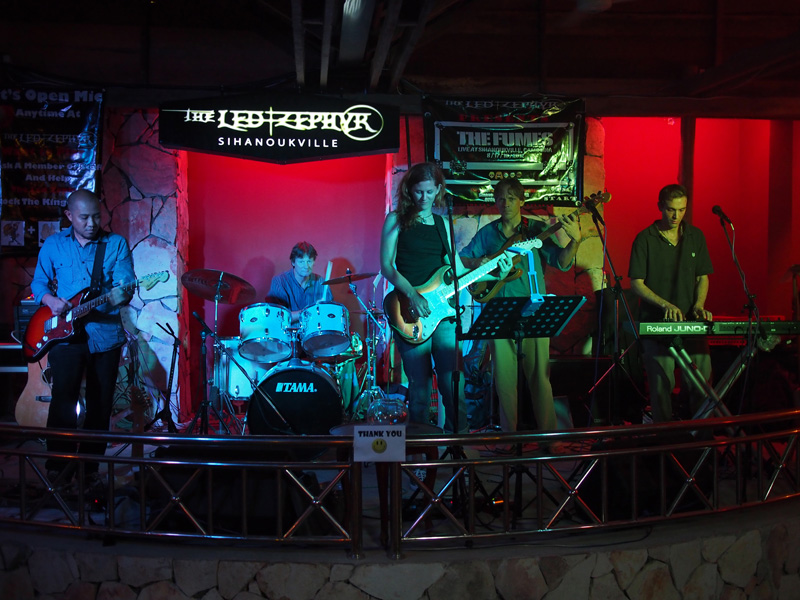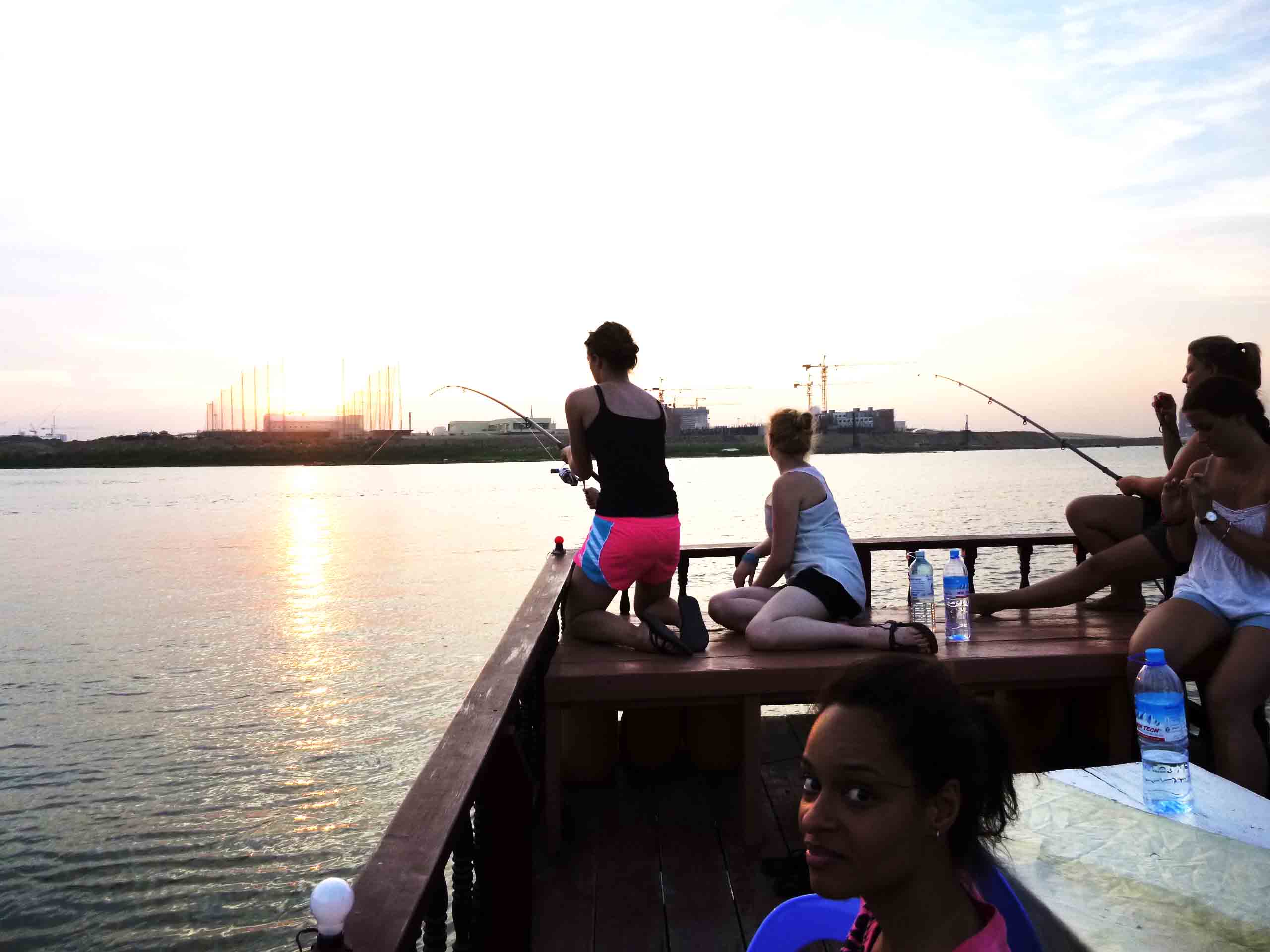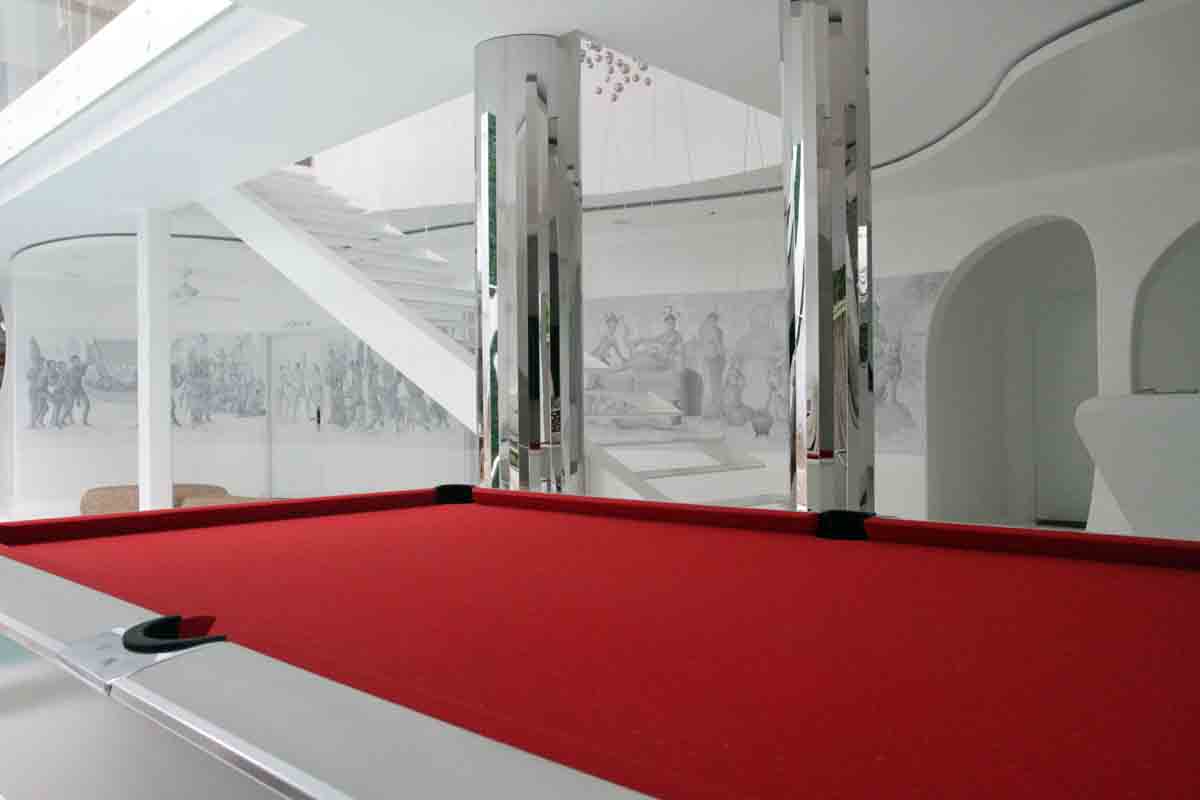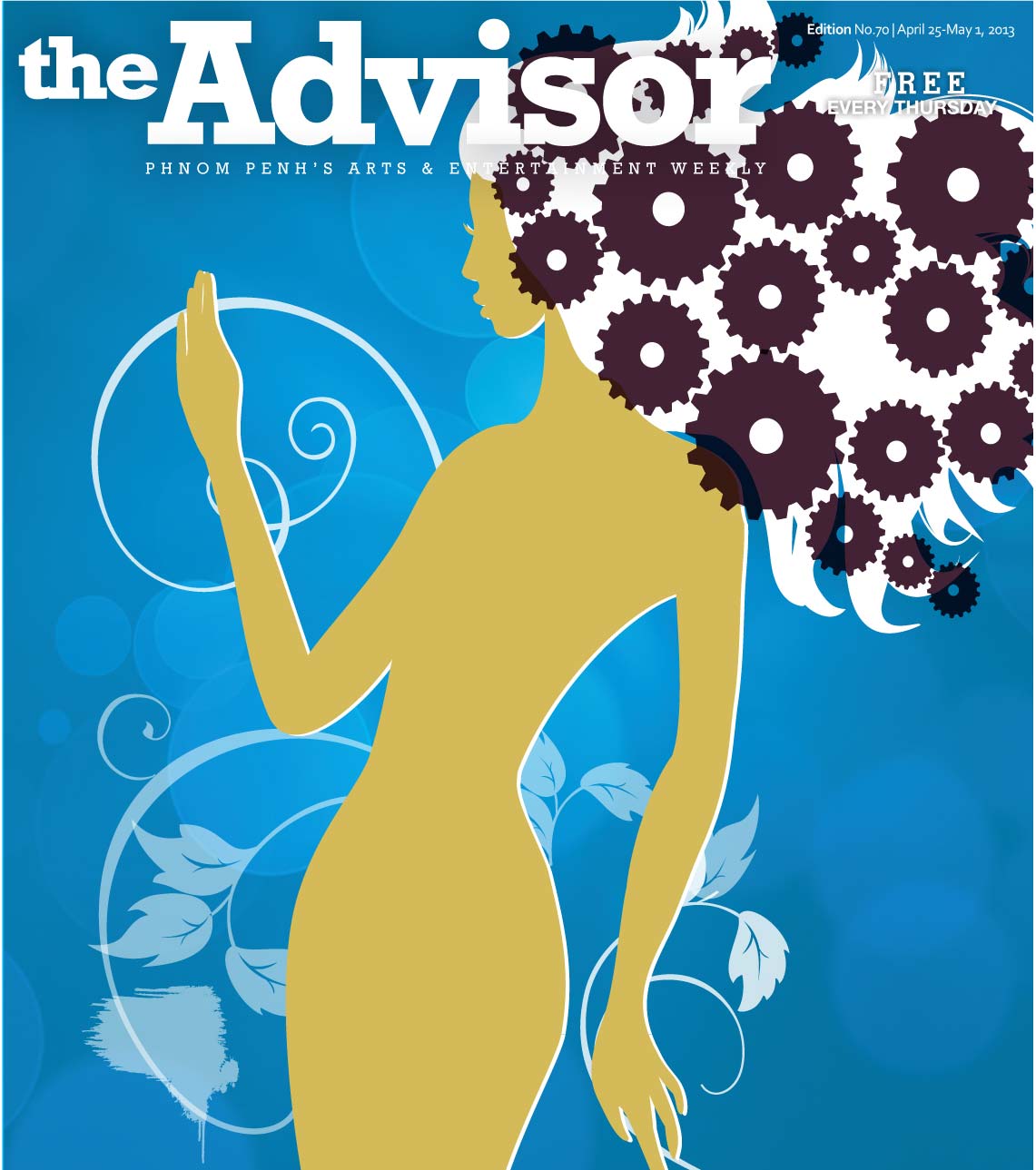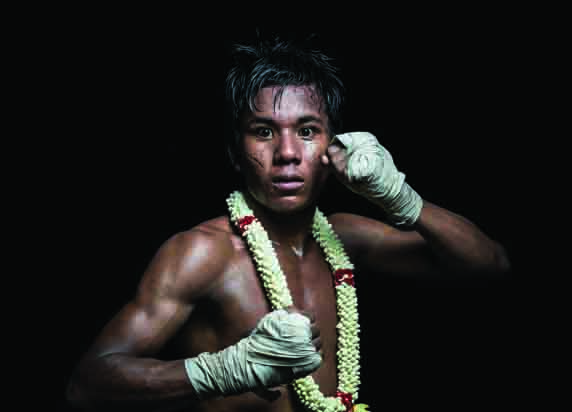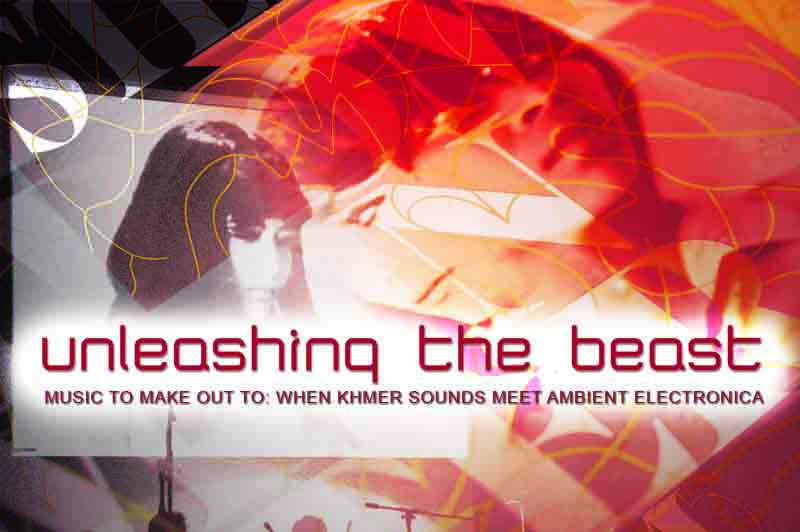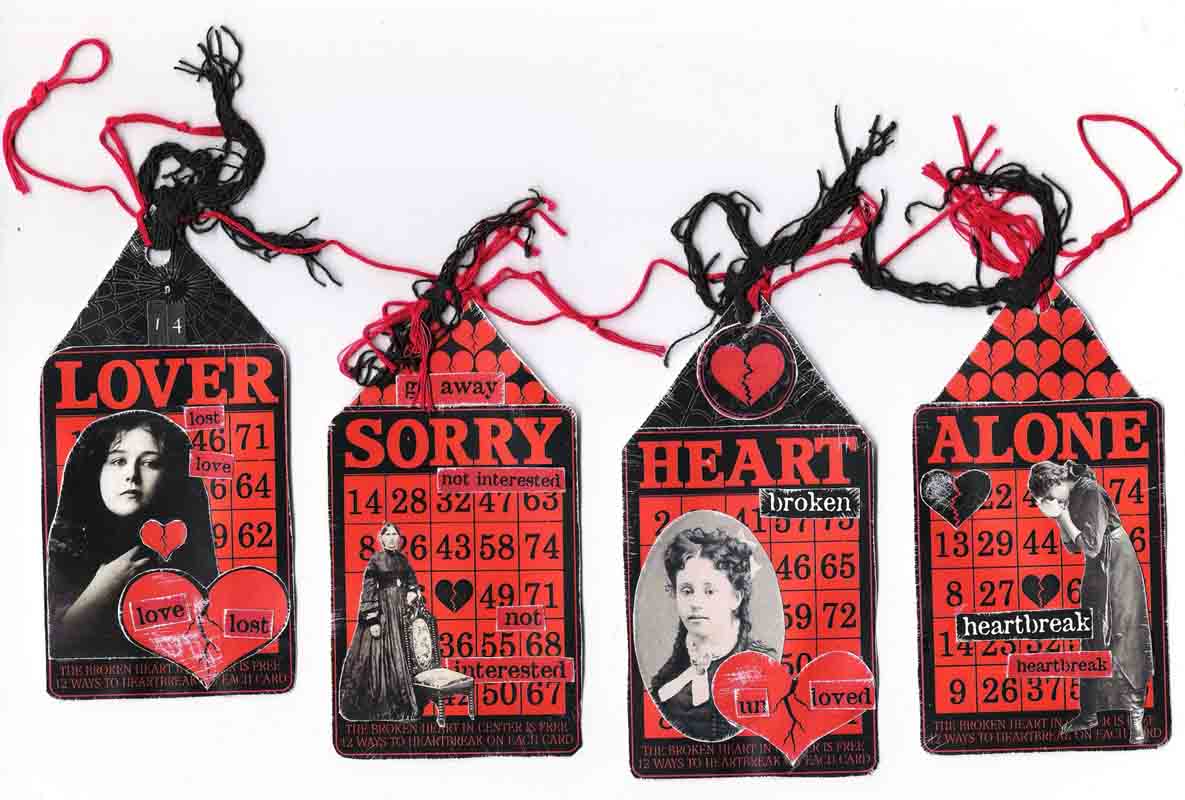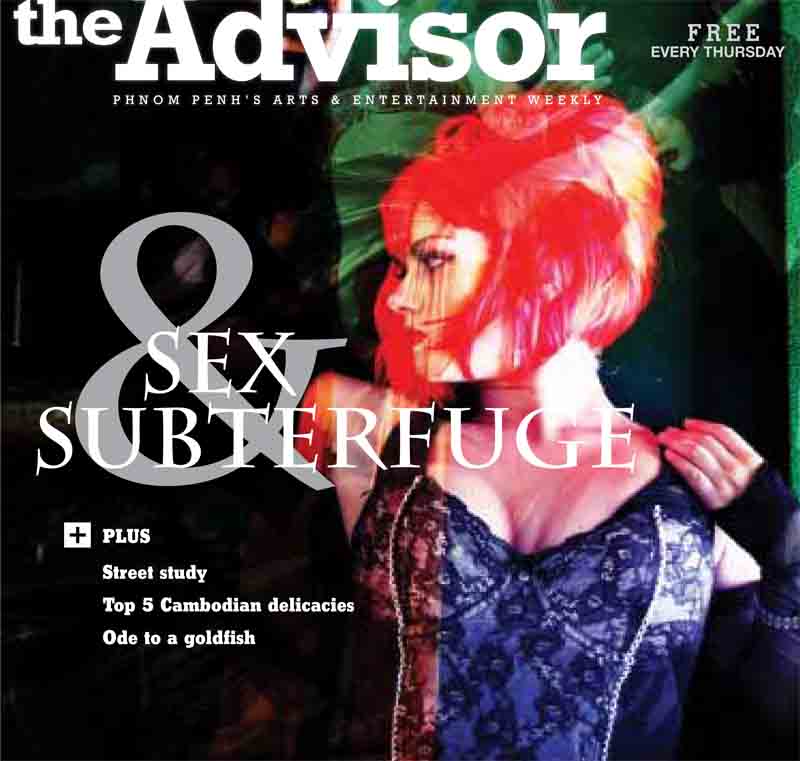Voyages of the soul. Messages from the gods. The expression of our innermost desires. Dreams have been variously interpreted throughout human history. From the ancient Sumerians to Sigmund Freud, many have opined on what these journeys of the unconscious might mean. But it was Carl Jung, the Swiss founder of analytical psychology, who argued that dreams are alchemical emblems that mirror our inner state and reveal what we need in order to achieve inner harmony. In so doing, he inspired zoologist Jane Teresa Anderson – who describes herself as a ‘dream alchemist’ – to devote herself back in 1992 to the study of oneirology. She has since authored six books; appeared on TV and radio shows across her adopted home of Australia, and even been called on to interpret the dreams of the flamboyant pop diva Lady GaGa. Here to host a one-day Dream Therapy Workshop ($75), Jane was kind enough to talk to The Advisor about analytical psychology, why New Age is nonsense, and how to master your unconscious mind.
Why Carl Jung?
In many ways, his turning point was taking time out by himself to fathom things out. He was a scientist; a neurophysiologist of sorts. He worked with Freud until they got to that break-away point. Freud was looking at dreams as ‘There’s something wrong with you. We’ve got to find out what it is. There must be a neurosis. Let’s cure you.’ Jung was more like ‘Dreams are getting us in touch with the greater reality of existence; taking you outside yourself. It can just as much tune you into the good and growing stuff out there. Looking at dreams is about growing; becoming a bigger and better person.’ They must have been at loggerheads with that basic difference of opinion. Jung, even as a scientist and a doctor, gave himself a bit of freedom – some poetic licence.
Freud was more than a little Hell-bent on neurosis.
That’s why I lean in and out of what Carl Jung does. If someone comes to me with a dream, my prime focus at first is to answer their questions. Why did you have this dream? Let’s have a look at it and explore it together. Let’s discover from your dream more about your mindset; about your unconscious mind, about how your past experiences are influencing the way you’re experiencing life now. Let’s put a window on that, without judgement. The next thing I have in mind is, whatever this dream is about, I want to help that person to experience a bigger and better life because of what they understand about themselves through their dreams. That’s leaning towards the Jung way. In some people’s dreams there may be things that happened in their childhood and there may have been great traumas, but there also may be just the inappropriate beliefs that our parents teach us, which can cause us to experience life in a blinkered way or a less-than-joyful way. It’s not that there’s something wrong with you and I’m definitely not diagnosing anything with you, but there were some elements in your past that have taken the edge off life for you. Can you see that? Shall we undo that for you and make it better? It does have that kind of therapeutic approach to it, but my end result is in giving the person new perspectives that enable them to experience life in a better way. We all go through life and some of us have greater challenges than others. Some of us, particularly in Cambodia, have terrible traumas that have happened. But the one thing that we all have – and it can be harder for some people than others – is the ability to take a fresh perspective; have a look in a different way; understand our past and other people’s past and bring in an element of unconditional love around that. Forgiveness: the ability to release ourselves from our past and look at life in a different way. It’s only by doing that that you can contribute to the world in better ways.
If you read too much Freud, it’s easy to assume every dream is about your relationship with your mother.
That’s right; it’s restrictive. Mine is a two-step process: it’s everything I just described to you, but then after helping the person to understand themselves through their dream, it’s about saying ‘In whichever area of your life this dream is shedding light on, would you like things to improve? In what way would you like things to improve? How would you like to have a better experience?’ That step two is doing the dream alchemy; using an exercise I co-create with the person involving the symbols from their dream. The point of the exercise is to transform the unconscious memory and enable you to move forward in a positive way. For example, you may have an unconscious belief that is bringing everything down around you. We can re-programme that into something more positive. You may also have had a really traumatic experience and it’s important to touch base with that experience from time to time to acknowledge that it happened, but with the dream alchemy we can help to reframe that as being in the past and see how to go forward and grow with that experience behind us. It’s quite a complicated process, but it basically involves doing an exercise using the symbols from the dream because if you talk to your unconscious mind using the same language it uses to talk to you during your dreams, just like the way it talks to you using your personal symbols, then you can re-programme it and reform it. Say you told me about a dream and I said: ‘You’ve got an unconscious belief that you’re really sick and you’ll never be well.’ You could go away and do a whole New Age affirmation – ‘I’m really healthy; I’m fighting fit’ – but we all know that doesn’t work.
I didn’t want to be the one to point that out.
[Laughs] It makes us feel good but generally it doesn’t work. And the reason it generally doesn’t work is because you’ve got an unconscious belief to the contrary. Because your unconscious mind is so strong, it usually drives you more than your conscious mind. So in that somewhat silly example, just to keep things simple, if you were someone who wasn’t particularly looking after your health, it would be because you’ve got unconscious beliefs: ‘If I was healthy I’d have to do this, that and the other. I want to be the victim. I’m going to make sure I’m unhealthy.’ In reprogramming that, you can then be released from it: ‘Why did I think it was so important to be sick? That’s stupid, isn’t it? I’ve got a new unconscious belief that’s supporting my conscious intention and my conscious mind.’ So you start creating a healthy lifestyle for yourself. You wouldn’t be seeking a cure for your health, finances or whatever if they were all really good – and the reason they’re not good is because they’re being unconsciously driven by something else. There’s no point talking to your conscious mind using rational everyday language because it’s not going to understand, but if you use the language of your unconscious mind – your dream symbols – you can really create quite stunning changes and there’s where I get really excited about working with people.
Mind over matter?
Yes, exactly – the unconscious mind over matter, by reprogramming that unconscious mind.
OK, I have a challenge for you. I’ve had a recurring dream for almost 20 years now. I’m back at university and have forgotten all about an exam I’m supposed to take. It sounds basic but the terror is really intense.
And you’ve never had a version of the dream where you say to everyone: ‘Hang on, I’ve not only got one degree but I’ve got two.’ You don’t get to that recognition in the dream?
Never!
OK, a couple of questions. What subject is the exam in or is it amorphous?
It’s usually geography, which was one half of my dual honours degree.
Because dreams usually process the previous 24 to 48 hours, the first step we’d take, particularly with a recurring dream, is to look back over what’s happened in that timeframe. What has affected you, either consciously or unconsciously, in the last couple of days? You’ll remember when you first had the dream, which is when this issue first started. Then each time it comes up it’s because it’s just reared its head in waking life. My first statement was going to be that I bet you did well at university and you’re a bit of a perfectionist. That’s really important to you. Is it?
You got me.
[Laughs] That’s great. What you’ve got in your dream there – and it’s a theme that comes up for quite a lot of people; I’ve had versions of it too – is a version of whatever feelings you first had sitting a key geography exam at that time. It will relate to why it was so important to you to do so well. It’s possible there was something about that exam that became more important than at any other time, so it represents a time when it’s not just being perfect and doing really well, it’s actually about meeting deadlines and being on schedule. Whenever any of those feelings come up for you now – and they’ll come up in the shape of ‘I know I always do a perfect job’ – your unconscious mind will give you a critical appraisal and say ‘Aaaah yes, but if you don’t do brilliantly at this you’re going to let down your dad, your mum…’ You don’t want it to become apparent that you may not be good enough. So a little insight before we move onto the dream alchemy: do you have any idea why the dream started almost 20 years ago?
It coincides with starting my career.
And why geography?
I loved the subject because it touches on everything, from politics and economics to meteorology and anthropology.
So it’s more important and connected with your passion. And it’s connected with a bigger vision, too, which is great. If you look back to the earliest possible age you can think of does a picture come into your mind of the first time you felt ‘It’s really important for me to do well here’?
Yes – my first music exams when I was studying piano as a child: pure unadulterated terror.
[Laughs] And who was it in your family or around you who made you feel it was so important to do so well in music?
That would be mostly me.
If we had an hour or so we would go into the actual details of your dream: where you were when you realised you’d forgotten about the exam. And the small details: what you were wearing; who you were with; what you were talking about. We would flesh out from that the unconscious drive that even as a 10-year-old made you create your own agenda and the importance around that. Then if we work through the dream alchemy – normally I’d get the person to pick the modality; most people usually pick visualisation or artwork – because you’re a writer, I would get you to do a dialogue. You don’t think about it at all and you absolutely don’t do perfect writing. ‘I’m going to write as fast as I can and I don’t care what comes out. If it’s garbage, that’s fine because I’m the only one who’s going to read it before it gets thrown away.’ The dialogue would be the geography test speaking to you and I’d give you the opening sentence: ‘Phoenix, how could you possibly forget me?’ Then you come in but you don’t put a structured or clever answer; you just put whatever comes into your head. Often, the first few rounds of dialogue are absolutely stupid but then all of a sudden your unconscious mind joins in and it starts to flow. You begin to see what the dynamics are behind this. If you keep the dialogue going for long enough, you’ll often go through the transformation process in the dialogue. You’ll come to an agreement, you and the geography exam. The exam will tell you a few things about you; you’ll tell the exam a few things about it, and at the end of it your unconscious mind goes: ‘Well, actually we kind of met in the middle there, didn’t we?’ It sounds silly but that can have tremendous flow-on effects. Because you said you also like body work, I’d probably get you to wake up and to stand very tall and to really feel your full height; to close your eyes and imagine getting on your keyboard and seeing the exam questions come up before you, then moving your hand, a bit like playing air guitar but typing, and bringing in all these feelings and emotions: ‘Wow! I didn’t even need to study. These questions are so easy! This is so much fun to do!’ Bring in the fun rather than the perfectionism. Bring it back to that music lesson. Music should be about fun: it doesn’t matter if you hit the right notes; it’s about expression and joy. It’s not about getting it tightly right because that won’t make very good music. As you pause and play this over again, paradoxically – you may think you’re writing at your best now – you’ll get even better because you’ll release some of those expectations. Sometimes I get people to do dialogues between two objects in their dream; you’re not actually in it at all. It could be between the geography exam and your piano, if they were in the same dream. That gets really fun!
This brings us to one of the points you make in your own literature: ‘The dreaming mind incorporates material beyond the senses that science generally acknowledges.’ In terms of what the unconscious human mind is capable of, is there untapped potential that science has yet to realise?
Absolutely yes, but it’s important that people don’t think their every dream is tuning into what’s happening outside somewhere: even when people ‘pre-see’ something in a dream, about 90% of the time, that event is already in motion. Step one: a dream isn’t literal, it’s symbolic – metaphorical. Once you’re awake and start to look at those metaphors, it’s deeper than that. This is something about how you see your life, your existence. It’s touching upon your liberated sense of self; putting you in touch with that greater part of your being which expresses itself symbolically and metaphorically. You experience bits of that and you call it ‘real life’.
So, the big question: does the key to the future of human evolution lie in breaking down the barriers between the conscious and unconscious mind?
One hundred percent! If you could say 101% and it made sense, I’d say 1,000,000%. It’s been touched upon by so many cultures throughout history. The one that springs to mind is the Delphic Oracle from Ancient Greece. It’s the place you went to consult the oracle on your future. Above the door, in Greek, is a sign that says: ‘Know thy self.’ Look within first. If we could all understand our unconscious minds more thoroughly and in that gain understanding of our greater being and what life is really all about, then we wouldn’t act in the ways we do. Even if everyone was just a metaphorical drop of water in the great ocean of life, if every little drop of water – drop by drop by drop – got it and looked within, we would all treat each other so differently. We’d treat each other with greater kindness and compassion and forgiveness – and with that, everything changes.
WHO: Jane Theresa Anderson
WHAT: Dream alchemy workshop
WHERE: Ragamuffin House, #123A Street 12BT, Sangkat Boeung Tumpun, Khan Mean Chey
WHEN: April 27
WHY: Discover how to master your unconscious mind
